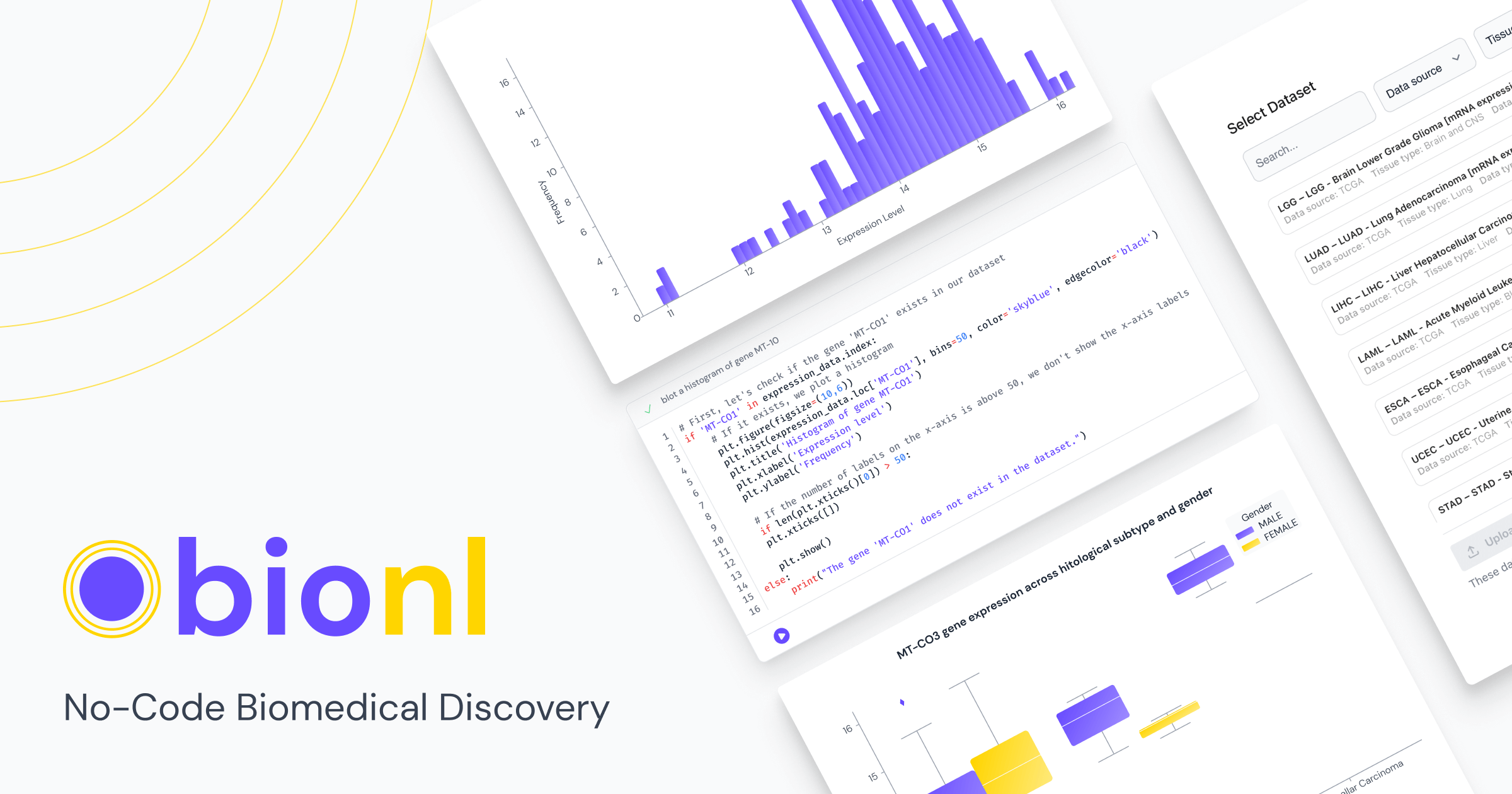Reproducibility in Bioinformatics Research with Bionl

Reproducibility, the cornerstone of scientific integrity, is the ability to duplicate the results of a scientific experiment or study. In the realm of bioinformatics research, reproducibility takes on a heightened significance due to the complexity of experiments, specialized software, and large datasets involved. This article explores the challenges and solutions to achieving reproducibility in bioinformatics research, with a special focus on how Bionl.ai can facilitate this crucial aspect.
Challenges to Reproducibility in Bioinformatics Research
- Complex Workflows: Bioinformatics research often involves multi-step workflows that utilize various types of software. The intricate nature of these workflows can make it challenging to document each step for future replication.
- Evolving Software: The bioinformatics field is dynamic, with software tools frequently updated or replaced. This constant evolution complicates the task of maintaining consistent software versions and settings across repeated analyses.
- Data Complexity: The datasets used in bioinformatics research are often voluminous and intricate, making them difficult to share, store, and reproduce.
The following video from Duke Centre for Computational Thinking, explains reproducibility in research along with other important terminologies.
Strategies for Enhancing Reproducibility
- Documenting Workflows: Every step, from data preprocessing to analysis and visualization, should be meticulously documented. This includes noting the software and settings used at each stage.
- Version Control: Utilizing version control systems like Git can help in tracking changes to workflows and datasets, thereby aiding in reproducibility.
- Containers: Technologies like Docker can package an entire bioinformatics workflow, making it easier to share and execute on different computing environments.
- Data and Code Sharing: Openly sharing the data and code used in bioinformatics research is essential for allowing other researchers to replicate and build upon existing work.
Role of Bionl.ai in Enhancing Reproducibility
Bionl.ai offers a comprehensive platform that is able to address the challenges of reproducibility in bioinformatics research. Here's how:
- Workflow Management: Bionl.ai provides a user-friendly interface for creating, documenting, and sharing complex bioinformatics workflows.
- Data Storage and Sharing: Bionl.ai offers secure and efficient data storage solutions, making it easier to share large and complex bioinformatics datasets.
- Compliance and Transparency: With a focus on compliance standards like HIPAA and GDPR, Bionl.ai ensures that your data is not only secure but also ready for peer review and replication.
Additional Tips for Improving Reproducibility
- Clear Variable Names: Use descriptive variable names in your code for better readability and understanding.
- Modular Code: Employ functions and modules to make your code more organized and maintainable.
- Code Comments and Testing: Always comment your code and perform unit and integration tests to ensure it works as expected.
- Continuous Integration: Use CI systems to automate the build, test, and deployment processes, ensuring your code is always in a deployable state.
Benefits of Reproducibility
- Increased Trust: Reproducibility fosters trust among researchers, which is crucial for scientific progress.
- Accelerated Discoveries: The ability to replicate results speeds up research by building upon validated findings.
- Reduced Waste: Avoiding the repetition of errors from previous studies saves both time and resources.
Conclusion
Reproducibility is not just a scientific ideal but a necessity, especially in the complex world of bioinformatics research. Platforms like Bionl.ai are making strides in simplifying this complexity, offering tools that are not just advanced but also tailored for the unique challenges of bioinformatics. By adopting these tools and following best practices, researchers can significantly enhance the reproducibility and credibility of their work.
This blog was co-authored with ChatGPT.



